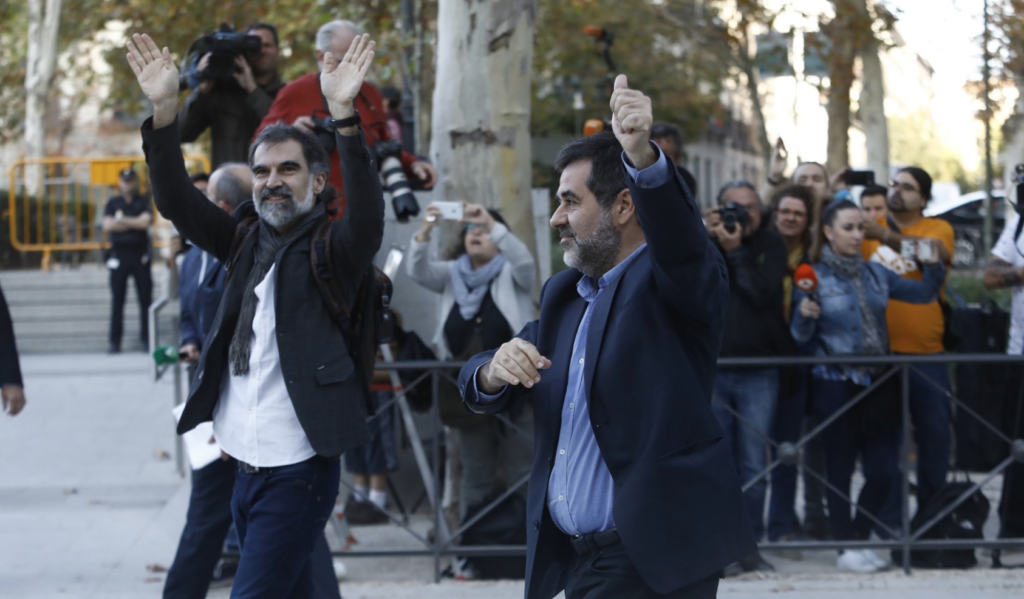21.01.2019 - 09:17
|
Actualització: 21.01.2019 - 10:17
The trial against Catalonia’s political prisoners is just around the corner. There are many rumours about a possible start date but we can only be certain that it will kick off after the last week in January. At any rate, it will likely start no later than February. For this reason the prosecutor’s office, the State attorney and the defence teams have been getting ready for weeks ahead of an event that will last three months and will include dozens of witnesses. But civil society is also gearing up for the trial. In order to prevent the sort of violations that we saw during the preliminary phase, a number of associations to do with law and advocacy have set up the International Trial Watch, a platform that will act as an international observer.
The founding associations are Novact, Associació Catalana per a la Defensa dels Drets Humans (Catalan Association for the Defence of HHRR), Observatori del Sistema Penal i els Drets Humans (University of Barcelona), Col·lectiu Praga and Irídia. They claim to be concerned by the way in which the case’s investigative phase has been conducted, with major violations of rights such as free speech, freedom of assembly and ideology. Now they are looking to focus on the court’s independence and impartiality, and that is why they would like to have observers present in the courtroom during the trial of the political prisoners. Mercè Barceló, the coordinator for Col·lectiu Praga who is the acting spokesperson for International Trial Watch, says that “we know it’ll change nothing, but it is essential for them to feel observed, as the presence of experts at the trial will deter any blatant wrongdoing”.
International report
When all their observation work is completed, they will issue a report that will be distributed internationally highlighting any irregularities that might have been committed and stating the framework in which a particular instruction was carried out. There will be two sets of observers. First of all there will be a team of law professors from universities in Seville, Jaén, the Basque Country, the Valencian Country and Catalonia. But, according to Barceló, “it is the international team that should lend the platform prestige, with renowned jurists: lawyers, professors and specialists in trial monitoring”. The two teams will be different because some of the international observers will require expert support to understand the workings of Spain’s legal system and how the trial ought to pan out from a procedural angle.
This poses a financial hurdle, as they aim to provide all observers with a translation of every interlocutory statement issued by Justice Llarena in the pre-trial phase of the case, as well as anything that goes down once the trial has begun: “We will have someone there who will brief them before the trial kicks off and a summary of what happened will be made available to them at the end of every day. For instance, it will point out whether a particular right has been infringed upon”.
Top names
For now they prefer not to disclose the names of the observers. Instead, they have chosen to announce them at an event to be held in Madrid at the end of this month, but they insist that they are top professors from Europe and the Americas. They will also reveal the names of the Spanish and international associations that have already joined the platform, whose role at the end of the trial will be important in order to send a message abroad.
All this work will be presented via final reports with conclusions, but others will be issued during the trial. A team will monitor the trial and they will release a daily report on the events of that day, as well as a weekly recap to help the general public understand what happened in the three court sessions that were held in the week.
All that work will require funding to cover the travel and lodging expenses of the observers, an office in Madrid, a press service, plus the legal translations. That is why they have launched a fund-raising campaign.


